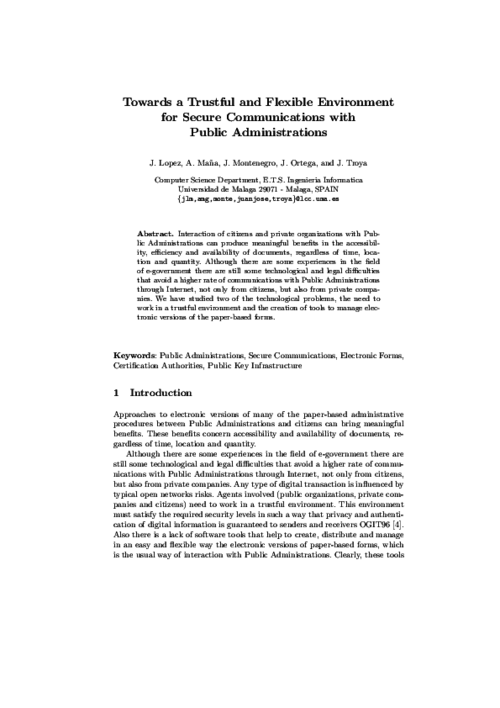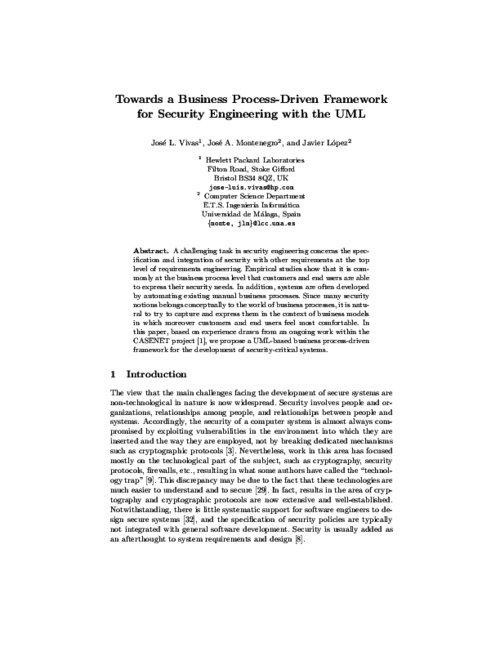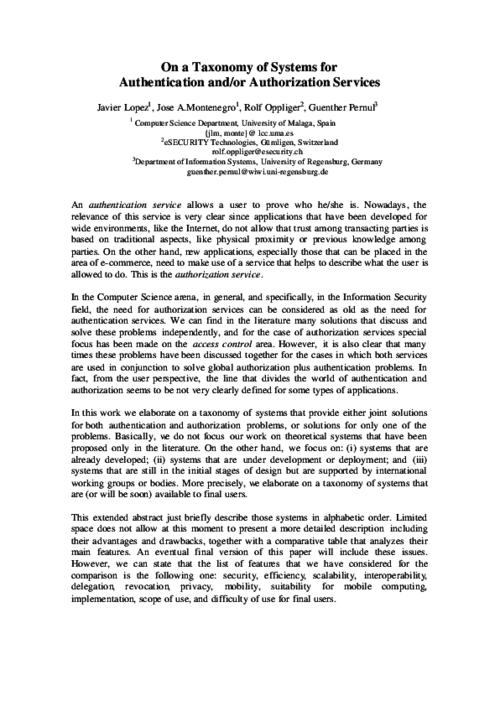 ]
] First International Conference on Electronic Government (EGOV’02), LNCS 2456, Springer, pp. 211-214, September, 2002.
Abstract
Interaction of citizens and private organizations with Public Administrations can produce meaningful benefits in the accessibility, efficiency and availability of documents, regardless of time, location and quantity. Although there are some experiences in the field of e-government there are still some technological and legal difficulties that avoid a higher rate of communications with Public Administrations through Internet, not only from citizens, but also from private companies. We have studied two of the technological problems, the need to work in a trustful environment and the creation of tools to manage electronic versions of the paper-based forms.

XIII Jornadas TELECOM I+D 2003, Noviembre, 2003.
6th International Conference on Information Security (ISC’03), LNCS 2851, Springer-Verlag, pp. 381-395, October, 2003.
Abstract
A challenging task in security engineering concerns the specification and integration of security with other requirements at the top level of requirements engineering. Empirical studies show that it is commonly at the business process level that customers and end users are able to express their security needs. In addition, systems are often developed by automating existing manual business processes. Since many security notions belongs conceptually to the world of business processes, it is natural to try to capture and express them in the context of business models in which moreover customers and end users feel most comfortable. In this paper, based on experience drawn from an ongoing work within the CASENET project \cite{CASENET}, we propose a UML-based business process-driven framework for the development of security-critical systems.

TERENA Networking Conference, June, 2004.
Abstract
In this work we elaborate on a taxonomy of systems that provide either joint solutions for both authentication and authorization problems, or solutions for only one of the problems. Basically, we do not focus our work on theoretical systems that have been proposed only in the literature. On the other hand, we focus on: (i) systems that are already developed; (ii) systems that are under development or deployment; and (iii) systems that are still in the initial stages of design but are supported by international working groups or bodies. More precisely, we elaborate on a taxonomy of systems that are (or will be soon) available to final users.
